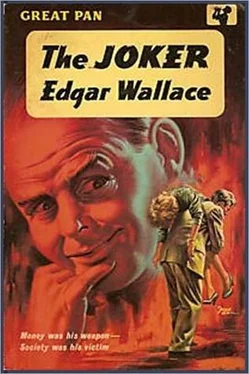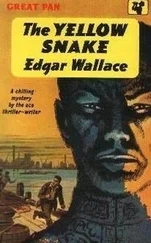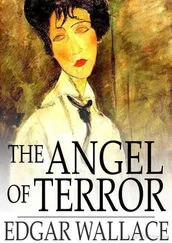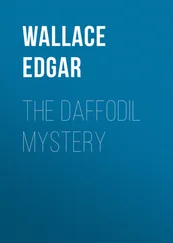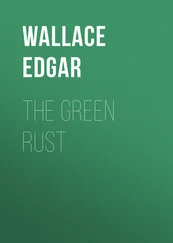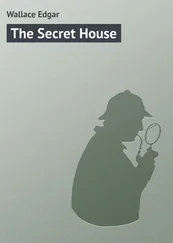‘You used to act for the Harlows once, didn’t you; Mr Stebbings?’
‘Yes,’ said Mr Stebbings carefully. ‘It was—er—a great responsibility. I was not sorry when young Mr Stratford went elsewhere.’
He said no more than this, which was quite a lot for Mr Stebbings, but by one of those coincidences which are a daily feature of life she came again into contact with the Harlow family.
Mr Stebbings was dealing with a probate case. A will had been propounded in the court, and was being opposed by a distant relative of the legator. The question turned on whether, in the spring of a certain year the legator had advanced certain money to one of the numerous beneficiaries under the will with the object of taking him out of the country.
Aileen was sent to inspect the cash book, since it was alleged the money had been paid through the lawyers. She found the entry without a great deal of difficulty, and, running down the index to discover if she had missed any further reference, her finger stopped at the words:
‘Harlow—Mercy Mildred. Harlow-Stratford Selwyn Mortimer.’
She would not have been human if she had not turned up the pages. For a quarter of an hour she pored over the accounts of the dead and gone Miss Mercy, that stern and eccentric woman, and then she saw an item ‘To L. Edwins, Ł125.’ An entry occurred four months later: ‘To L. Edwins, Ł183 17s. 4d.’ She knew of Mrs Edwins, and had seen a copy of Miss Mercy Harlow’s will—she had looked it up after the Dartmoor meeting, being momentarily interested in the millionaire.
She turned to Stratford’s account, which was a very small one. Evidently, Mr Harlow made no payments through his lawyers. If an opportunity had occurred she would have asked Mr Stebbings for further information about the family, though she was fairly sure that such a request would have produced no satisfactory result.
Deprived of this interest, Aileen was thrown back upon the dominating occupation of life—her amazement and disapproval of Aileen Rivers in relation to Mr James Carlton.
He knew her address: she had particularly told him the number. Equally true it was that she had asked him only to write on official business. By some miracle she had not been called to give evidence at the inquest and she might, and did, trace his influence here. But even that could not be set against a week’s neglect.
‘Ridiculous’ (said the saner part other, in tones of reprobation). ‘You hardly know the man! Just because he’s been civil to you and has taken you out to dinner twice (and they were both more or less business occasions), you’re expecting him to behave as though he were engaged to you!’
The unregenerate Aileen Rivers merely tossed her head at this and was unashamed.
She could, of course, have written to him: there was excuse enough; and she actually did begin a letter, until the scandalous character of her behaviour grew apparent even to Aileen II.
Saturday passed and Sunday; she stayed at home both days in case—
He called on Sunday night, when she had given up—well, if not hope, at any rate expectation.
‘I’ve been down to the country,’ he said.
She interviewed him in the sitting room, which her landlady set aside for formal calls.
‘Couldn’t you come out somewhere? Have you dined?’
She had dined.
‘Come along and walk; it’s rather a nice night. We can have coffee somewhere.’
Her duty was to tell him that he was taking much for granted, but she didn’t. She went upstairs, got her coat and in the shortest space of time was walking with him through Bloomsbury Square.
‘I’m rather worried about you,’ he said.
‘Are you?’ Her surprise was genuine.
Yes, I am a little. Didn’t you tell me Mrs Gibbins used to confide her troubles to you?’ There was a note of anxiety in his voice.
‘She was rather confidential at times.’
‘Did she ever tell you anything about her past?’
‘Oh, no,’ said Aileen quickly. ‘It was mostly about her mother, who died about four years ago.’
‘Did she ever tell you her Christian name—her mother’s, I mean?’
‘Louisa,’ answered the girl promptly. ‘You’re awfully mysterious, Mr James Carlton. What has this to do with poor Mrs Gibbins?’
‘Nothing, except that her name was Annie Maud, and the letters containing the money, which came to her quarterly, were addressed to “Louisa,” 14 Kennet Road, Birmingham, and readdressed by the postal authorities. A letter came this morning.’
‘Poor soul!’ said the girl softly.
‘Yes.’
It was surprising how well she understood him, remembering the shortness of their acquaintance. She knew, for example, when he was thinking of something else—his voice rose half a tone.
‘Isn’t that strange? Do you remember my telling you of the eighteen thousand policemen and the Brigade of Guards, and the whole congregation of the blessed? And now they are all agitated because Mrs Gibbins’s mother was named Louisa! That discovery—I shouldn’t have asked you, because I knew it already—proved two things: first, that Mrs Gibbins committed a crime some fifteen years ago, and secondly, that this is the second time she’s been dead!’
He suddenly relaxed and laughed softly.
‘Don’t tell me,’ he warned her. ‘I know just the fictional detective whom I am imitating! The whole thing is rather complicated. Did I say coffee or dinner?’
‘You said coffee,’ she said.
The popular restaurant into which they went was just a little overcrowded and after being served they lost no time in making their escape.
They were passing along Coventry Street when a big car rolled slowly past. The man who was driving was in evening dress…they saw the sheen of his diamond studs, the red tip of his cigar.
‘Nobody on earth but the Splendid Harlow could so scintillate,’ said Jim. ‘What does he do in this part of the world at such an hour?’
The car turned to the right through Leicester Square and passed down Orange Street at a pace which was strangely majestic. It was as though it formed part of and led a magnificent procession. The same thought occurred to both of them.
‘He should really travel with a band!’
‘I was thinking that, too,’ laughed the girl. ‘He frightened me terribly the night he came to the flat. I mean, when I opened the door to him. And I’m not easily scared. He looked so big and powerful and ruthless that my soul cowered before him!’
They passed up deserted Long Acre; it was too early for the market carts to have assembled, and the street was a wilderness. Suddenly the girl found her hand held loosely in Jim Carlton’s. He was swinging it to and fro. The severer side of Miss Aileen Rivers closed its eyes and pretended not to see.
‘I’ve got a very friendly feeling for you,’ said Jim huskily. ‘I don’t know why, but I just have. And if you talk about the philandering constabulary, I will never forgive you.’
Three men had suddenly debouched from a side street; they were talking noisily and violently and were moving slowly towards them. Jim looked round: the only man in sight was walking in the opposite direction, having passed them a minute or so before.
‘I think we’ll cross the road,’ he said. He took her arm, and, quickening his step, led her to the opposite sidewalk.
The quarrelling three turned back and Jim stopped. ‘I want you to run back to the other end of Long Acre and fetch a policeman,’ he said in a low voice. ‘Will you do this for me? Run!’
Obediently she turned and fled, and as she did so one of the three came lurching towards him.
‘What’s the idea?’ he said loudly. ‘Can’t we have an argument without you butting in?’
‘Stay where you are, Donovan,’ said Jim. ‘I know you and I know just what you’re after.’
Читать дальше
